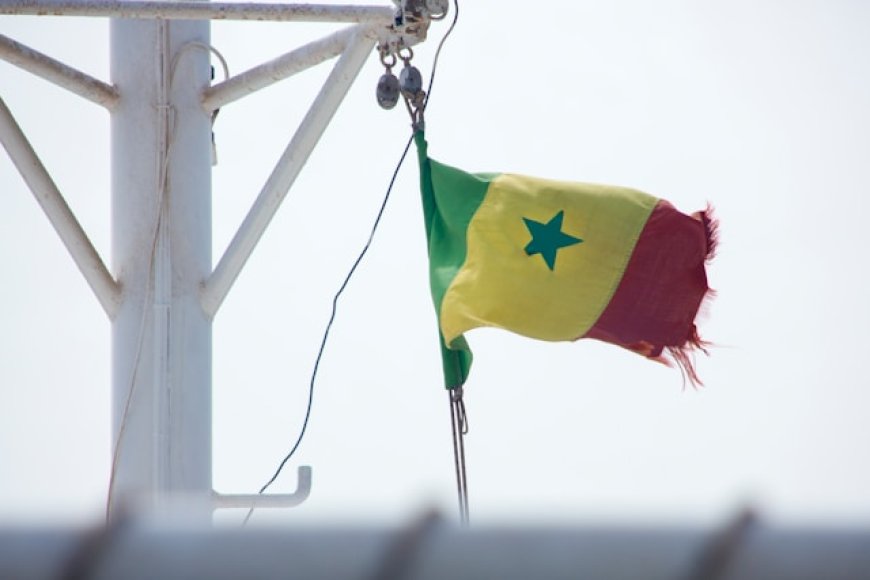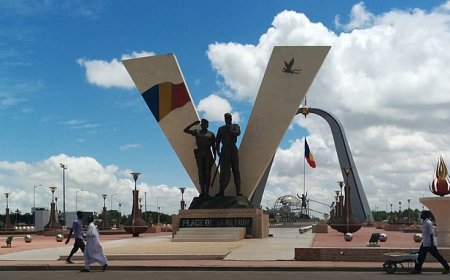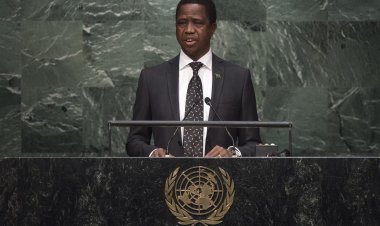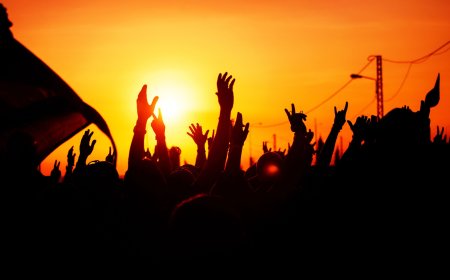This article is part of a series of special thought pieces that APRI published in partnership with the Deutsche Afrika Stiftung e.V
Summary
- From controversies over candidate qualifications to allegations of constitutional breaches by the incumbent government, Senegal is embroiled in a political crisis and a crisis of legitimacy, both of which have implications for the broader Sahel region and beyond.
- President Macky Sall's decision to postpone the February 25 election, citing a supposed conflict between the legislative and judicial powers, has ignited a firestorm of dissent, prompting protests, strikes and arrests across the country.
- The Senegalese Parliament has voted to delay elections until December 15, 2024, but the Constitutional Council has ruled that both the President’s decree and the Parliament’s vote are unconstitutional.
- Amid this turmoil, key opposition figures have been embroiled in tumultuous politico-legal battles.
- As Senegal navigates these turbulent waters, questions loom large about the ability of the incumbent government to hold transparent, fair and inclusive elections.
Background
The presidential elections in Senegal were initially scheduled for February 25th, 2024. Needless to say, the Senegalese eagerly awaited the presidential elections, having endured two years of judicial sagas, procedural controversies, political maneuvering and intermittent disruptions caused by protests, which security forces inevitably met with repression. Out of the 93 initial candidates that vied for the presidency, the Constitutional Council ultimately approved a final list of 20 contenders. Along the way, some candidates abandoned their ambitions, while others failed to navigate the stringent ‘parrainage’ system. The latter was implemented to vet and reduce the great number of candidates: Senegal is home to over 300 political parties for a population of roughly 18 million people. Initially, there were 93 candidates, but the final list now comprises only 20 candidates. The ‘parrainage’ mandated aspiring candidates to secure around 50,000 signatures from registered voters.
Then, on February 3rd, President Macky Sall unexpectedly issued a decree that annulled the elections, just three weeks before they were scheduled to take place. To justify this breach of trust, he cited a conflict between the Constitutional Council and Parliament, as well as the need for an inquiry into corruption allegations made against two judges of the Council.
At stake is the legitimacy of the incumbent government to conduct credible and transparent elections amidst a climate of heightened tension.
In terms of Senegal's Constitution and electoral regulations, Sall's decree is deemed both illegal and unconstitutional. The cancellation of the elections was presented as a fait accompli even before any court or commission had the opportunity to assess the allegations. Sall’s subsequent offer of a 'national dialogue' seems both a trivial and poor attempt to placate the opposition. Throughout his second term in office, Sall’s unilateral approach has steadily edged uncomfortably closer to authoritarianism.
The immediate fallout from this decision is an unprecedented constitutional crisis that has thrown the country into turmoil. Further, the decision—widely contested across the political spectrum and challenged in courts—throws a wrench in an already fragile political process. More crucially, the postponement introduces great uncertainty, adversely impacting virtually every sector of professional and social activity. The pressing question remains: Can this dynamic democracy find a way forward amidst mounting tensions and international scrutiny?
An Unconstitutional Decision
On February 5th, a coalition of Sall’s APR—the Alliance for the Republic party— and the former adversary PDS—the Senegalese Democratic Party—pushed through a vote to postpone the election to December 15, 2024. To prevent opposition parliamentarians from disrupting the vote following a long day of intense debates, the police were called to keep them outside of the chamber. The incident highlights the level of violence witnessed under Sall’s regime. In essence, Macky Sall usurped prerogatives exclusively vested in the Constitutional Council. In doing so, he manufactured an artificial crisis between the legislative and judicial powers and manipulated the Parliament to enforce an illegitimate change in the electoral process. However, Sall now finds himself an isolated President. Senegalese from all walks of life have vehemently rejected this illegitimate change. Protests have erupted across cities, and opposition candidates have decided to carry on with their campaign rallies regardless. They have also lodged legal challenges against both Sall’s decree and the parliament’s vote with the same Constitutional Council whose legitimacy is now in doubt.
In the aftermath of Sall's decision, several allies, including ministers and high-ranking officials, have chosen to resign from the government coalition. It's becoming evident that Sall's bold move stems from an internal party crisis. Sall's handpicked successor, Amadou Ba, neither enjoys consensus within the ruling coalition nor is he popular amongst Senegalese voters. In fact, several parallel candidacies have emerged from dissenting factions within the party. Furthermore, it is apparent that Sall's party is unable to leverage his incumbency and the infrastructural projects initiated during his tenure to win another presidential election. Sall's two terms have been marred by numerous corruption scandals involving close associates and family members, further tarnishing his legacy.
Before the electoral process was interrupted, Senegal had experienced a tumultuous two-year period characterised by intense political manoeuvring leading to significant disruptions in the economy and various sectors. The country witnessed a decline in economic output attributed to widespread protests, strikes, the destruction of businesses and infrastructure and a decrease in government activity. Macky Sall's government, leveraging its incumbency privilege and access to public resources, employed tactics aimed at weakening or excluding potential rivals from the political arena. For all these reasons, the Senegalese electorate eagerly anticipated the scheduled February elections as an opportunity to move forward and leave behind two years of uncertainties.
Sall’s APR party’s most serious contender is arguably Ousmane Sonko, currently in jail (more on this below). Sonko’s party, PASTEF—the African Patriots of Senegal for Work, Ethics, and Fraternity—centres its platform on combating corruption and malfeasance within government and the public and private sectors. Sonko, himself a former tax inspector, is renowned as an anti-imperialist figure who vows to restore economic sovereignty and national initiative to Senegal. With Senegal poised to become an oil and gas-producing nation, the outcome of the elections could impact its economic future and regional dynamics, influencing factors such as international cooperation and investment. Part of Sonko’s campaign pledge entails conducting a thorough review and renegotiation of all contracts with oil companies, aiming to rectify unfair and inequitable terms pertaining to the exploitation of petroleum and gas resources.
Another notable contender is Aminata Touré, a former Justice Minister and Prime Minister under the Sall government. Touré is amongst several candidates who were disqualified by the Constitutional Court for allegedly failing to meet the requirements of the 'parrainage' system. Despite being disqualified from running in the elections, Touré has emerged as a prominent figure at the forefront of a collective of Senegalese politicians vehemently denouncing Sall's unprecedented move. She is an expert in economics and international finance and a powerful voice in the Senegalese political landscape. While not enjoying the widespread popularity of some other figures given her past alliance with Sall and navigating the challenges of being a woman politician in a patriarchal society, Touré remains a respected politician with a fresh perspective. Her trajectory as a hardworking, ‘clean’ individual bolsters her credibility amongst voters.
Another key actor is Karim Wade, son of Abdoulaye, the former Senegalese president. Wade inherited the leadership of PDS from his father. Wade’s party levelled accusations of corruption against two of the seven members of the Constitutional Council. This move came after the Council disqualified Wade’s candidacy on grounds that he holds dual citizenship, which contradicts the declaration he had provided on oath in his submission. Rose Wardini, former mayor of Dakar, is another candidate who got into trouble for perjuring herself regarding her dual citizenship. The Senegalese Constitution prohibits individuals holding dual citizenship from running as presidential candidates.
Wade is not merely a footnote to the current story. Exiled in Qatar since 2016, he has been overseeing a once powerful political party in a remote work mode from Doha. Wade was amongst the primary targets in Sall’s initial efforts to fulfil his campaign pledge to go after individuals suspected of malfeasance during the Wade administration: He spent over three years in jail before being sent to exile following a presidential pardon.
Both Sall and Wade owe their careers in government to the patronage of Wade's father. Sall's ascent to the presidency came after a struggle against the elder Wade, who initially intended for his son to succeed him as the leader of the party and subsequently the nation. Ideologically, both Sall and Wade align with the liberal camp and share a commitment to free market, the financialisation of the economy, foreign direct investment and the extended privatisation of public assets.
Alongside politicians, a chorus of outspoken voices, usually reserved, is rising in dissent. These include the Association of Muslim Professionals, the Archbishop of Dakar and the League of Imams. Over fifty University professors have signed a petition to denounce the unconstitutional character of Sall’s decree. Moreover, a coalition of civil society organisations, rallying under the banner of Aar Sunu elections (‘protect our elections’), has pledged to sustain public pressure on the Sall government until elections are effectively conducted. Meanwhile, student unions from high schools and universities, along with teachers’ unions, have scheduled strikes in the coming days and weeks. In response, Sall’s government has intensified repressive measures, resulting in the arrest of numerous activists and political leaders. Additionally, it restricted access to mobile data for a few days and revoked the license of a prominent independent media outlet, Walfadjri, before subsequently reinstating it a few days later.
A Deconsolidated Democracy
In the absence of extraordinary circumstances justifying a postponement, such as the death of a candidate, Sall has breached the Constitution. Art.103, Parag.7 of the Senegalese Constitution limits the duration of the president’s mandate, and it is an unamendable provision. Sall’s move has further reignited the debate on the spectre of an illicit third term. The reason for this is the lack of constitutional provisions that address his legal status after April 2, 2024—the date he is mandated to transfer power to a new President. Electoral regulations stipulate that elections need to be called through a decree at least 80 days before the scheduled voting date. Sall’s decision thus introduces a legal quandary with an uncertain outcome.
Whether Senegal is an established democracy is an open question. It has nonetheless enjoyed a long history of multipartyism, a culture of free speech and independent media. The Senegalese have been formally voting since 1871, and there have been three peaceful transfers of power (1982; 2000; 2012). For a country with such a strong electoral tradition, the shift towards securitarian and repressive governance under Sall's 12-year tenure is striking. The government's human rights record has sparked significant concerns, particularly regarding the violation of basic political rights such as political participation, association and assembly.
Sall’s presidency began with promise as ambitious infrastructure projects were initiated under the PSE framework (Plan for an Emerging Senegal). The latter serves as a blueprint for achieving economic development by 2035 through the structural transformation of the economy, fostering human development and ensuring the establishment of good governance practices. However, despite significant investments in infrastructure and substantial loans acquired from the international sovereign debt market, Senegal continues to experience high growth rates juxtaposed with low levels of human development. This situation underscores the complex financial implications associated with infrastructure projects, particularly those financed through Public-Private Partnership (PPP) schemes. Concerns have emerged regarding the sustainability of such projects and the government's capacity to effectively manage services deemed unprofitable within this framework.
A major limitation of the Senegalese political system is the excessive concentration of power in the hands of the President—a phenomenon often referred to as ‘hyper-presidentialism’. With the executive branch primarily responsible for proposing legislation, the Parliament merely serves to endorse proposals. This imbalance poses a clear risk of authoritarian misuse of power, and a concomitant erosion of institutional strength. Recognising this challenge, a diverse coalition comprising political parties, civil society groups, scholars, religious figures and traditional leaders convened to explore avenues for enhancing institutional integrity and promoting public engagement in the political process. This initiative, known as the 'Assises nationales', convened discussions and deliberations from June 2008 to May 2009, under the leadership of Amadou-Mahtar M’Bow, former Director-General of UNESCO. The outcome of these efforts was a comprehensive report outlining a state of multidimensional crisis and offering a series of recommendations for institutional reform, as articulated in the Charter of Democratic Governance.1
Despite his initial commitment to implementing the conclusions of the ‘Assises nationales’, Sall has primarily been focused on consolidating his power. Instead of prioritising governance reforms, he has resorted to repressive tactics, including the imprisonment of dissidents, the manipulation of political parties and the stifling of civil society. The Sall government has waged a formidable smear and repression campaign and a crackdown against the main opposition parties. Since 2021, his administration has detained over 1000 individuals for expressing dissenting views, with the most common accusation being 'insulting the head of state'. In fact, every major peaceful march or protest since 2021 has been followed by a spate of arrests. On February 9-10 2024 alone, three young men lost their lives: Modou Gueye (23), a street vendor in Dakar, Alpha Yoro Tounkara (22), a student at Gaston Berger University of St Louis and Landing Diedhiou (18), a high school student in Ziguinchor in the south of Senegal. The southern region of Casamance has in fact been under a de facto blockade since June 2023 following the suspension of maritime rotations of the Aline Sitoë Diatta (ASD) boat, the cessation of air services, and the halt of the national bus service (Senegal Dem Dikk buses), all due to ‘security reasons’. The University of Dakar has been closed for the past eight months. Other universities have also experienced massive disruptions, severely jeopardising the academic year. This reality stands in stark contrast to the principles espoused by Sall during his 2011 presidential campaign, when he promised to uphold a 'virtuous, frugal, and efficient' governance model.2 In many respects, Sall's controversial decision to delay the election represents the culmination of a gradual erosion of the checks and balances designed to constrain the authority of the president and the executive branch.
The Senegalese opposition, on the other hand, has been largely uncreative and opportunistic. Despite the impressive popularity of Ousmane Sonko, neither his party nor the others have presented a compelling alternative governance model. Sonko enjoys tremendous popularity amongst the Senegalese youth and beyond. However, in 2021, Sonko faced accusations of rape and death threats by an employee of a massage parlour. After two years of political upheaval and judicial saga, he was convicted in June 2023 for two years of imprisonment for 'corrupting youth'— a less severe offence than the initial rape charge. 3
Sonko’s party PASTEF has since been disbanded on grounds of inciting insurrection, and numerous members of the party’s governing structures imprisoned. When Sonko was barred from running for the presidency following a six-month sentence in a libel court case, the party put forward its number two, Bassirou Diomaye Faye, as an alternative. Faye has also been in jail awaiting trial since April 2023. He was detained after he posted a Facebook message in which he criticised magistrates for their lack of impartiality. He faces charges of fomenting insurrection, undermining state security and plotting against the state.
Finding A Way Forward
The constitutional crisis in Senegal reverberates far beyond its borders. There are at least two reasons for this: Firstly, in a regional context where democratic progress is being undermined by the rise of a new crop of military officers, the ‘international community’ needs to hold on to the idea that Senegal remains a beacon of democracy amidst a landscape of illiberalism. Preserving Senegal's democratic reputation is crucial in this regard.
Secondly, three neighbours of Senegal are under sanctions of the international community and ECOWAS—the Economic Community of West African States—following military coups. These governments are increasingly turning inwards, prioritising an all-out military solution to address the security challenges that plague the Sahel region. They have also been quick to repress and curtail citizens’ human rights. Unfortunately, the initial optimism for positive change following these coups has waned, as the lack of coherent governance and economic policies by the military regimes has become evident. Additionally, Mali, Niger and Burkina Faso have initiated measures to withdraw from ECOWAS, signalling a potential unravelling of regional integration progress achieved in West Africa over the past 50 years.
Given the regional context, the events unfolding in Senegal have significant implications for regional stability. The ongoing electoral crisis in Senegal is unprecedented, generating high uncertainty in a country already grappling with a sluggish economy due to two years of political deadlock.
A peaceful resolution of the impasse will require mediation, whether by religious leaders and civil society actors or international stakeholders. Leaders of Sufi brotherhoods wield significant influence in the country, and Senegal's government heavily relies on donor funding for its day-to-day operations. Without intervention, continued clashes between security forces and protesters nationwide are inevitable. Such a failure could escalate into more violence, exacerbating the situation and damaging Senegal's stability and the wider region. If the outcome of the confrontation is uncertain, it’s likely to produce more violence and a further degradation of government-society relations. That is, unless the government of Macky Sall fully adheres to a ruling issued by the Constitutional Council on February 15th nullifying both his decree and the parliament's decision to postpone elections.
Endnotes
1 Amadou Mahtar MBow (ed.)(2012). ASSISES NATIONALES Sénégal, An 50. Bilan et perspectives de refondation. Paris: Harmattan. https://www.editions-harmattan.fr/livre-assises_nationales_senegal_an_50_amadou_mahtar_mbow-9782296556430-35826.html
2 Gouvernement du Senegal “Les nouvelles fonctions d'une administration de développement” https://www.sec.gouv.sn/actions-et-realisations/modernisation-de-ladministration-et-promotion-du-dialogue-social/les
3 Under Senegalese law, ‘corrupting youth’ involves the abuse of one’s power to encourage debauchery or engage in sexual activities with a minor.
About the Author
Amy Niang
Amy Niang is an Associate Professor of Political Science. Her work investigates African Political History and Political Thought, particularly in relation to the state and related notions of sovereignty and stateness. Her work also examines various aspects of Africa’s international relations and the geopolitics of security in the Sahel. She is the author of The Postcolonial African State in Transition: Stateness and Modes of Sovereignty (2018) and co-editor of Identités sahéliennes en temps de crise: histoires, enjeux et perspectives (2019, with Baz Lecocq).




